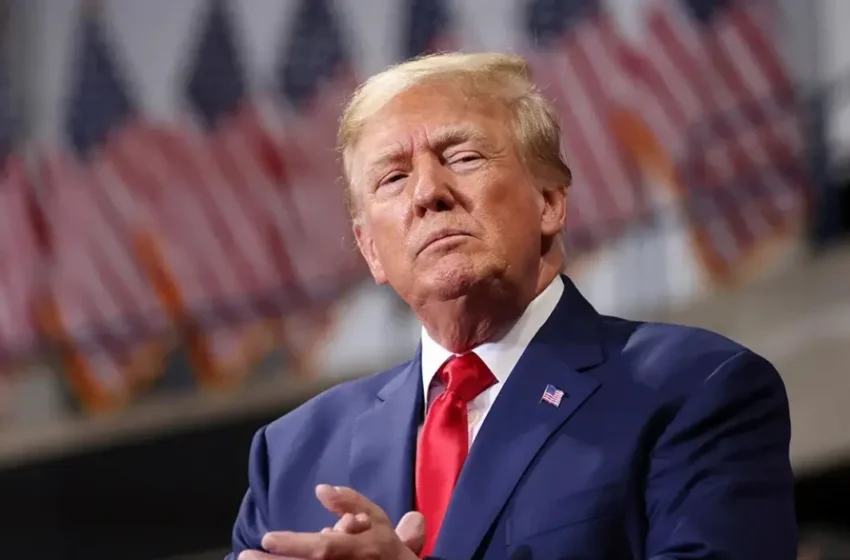
Washington (Europe Brief News) – President Donald Trump has scheduled his first major foreign mission since becoming president to host a leadership summit with GCC members when he visits Saudi Arabia in mid-May.
Several U.S. officials, along with two Arab diplomats, revealed to Axios that this meeting seeks to strengthen economic ties and present his government’s regional policy agenda.
Summit Focus: Economic Partnerships and Regional Strategy
Saudi Crown Prince Mohammed bin Salman (MBS) will gather leaders representing all six GCC nations, including Saudi Arabia, United Arab Emirates (UAE), Bahrain, Kuwait, Oman and Qatar, at the summit taking place on May 14. President Trump’s arrival in Riyadh is scheduled for May 13 before his participation in the upcoming event that seeks to reveal his administration’s Middle Eastern policies.
The White House emphasised economic collaboration and investment opportunities as central themes, reflecting Trump’s long-standing “America First” agenda. A U.S. official noted the trip underscores the administration’s intent to “rebalance strategic alliances” while securing deals beneficial to American industries.
Itinerary and Diplomatic Nuances
Trump plans to continue his Middle Eastern tour with visits to Doha on May 15 to speak with Emir Sheikh Tamim bin Hamad Al Thani, after which he will proceed to Abu Dhabi to meet with UAE President Mohammed bin Zayed (MBZ). According to an Arab official, the list of attending Arab leaders may grow if diplomatic situations change during the last few days.
The invitation of Qatar suggests possible diplomatic developments to resolve the ongoing Saudi-UAE blockade against Qatar that started in 2017. Due to the limited duration of the trip, experts dismiss the possibility of making meaningful progress.
Policy Alignments and Controversies
The summit appears at a time when the Trump administration conducts multiple strategic adjustments across global politics. Earlier this week, the president declined to describe the 1915 Ottoman-era mass killings of Armenians as a “genocide,” a stance aligning with Turkey’s position but drawing criticism from human rights groups. The United States may continue its temporary moratorium on lifting selected import tariffs, which would potentially affect Gulf exporters.
The recent phone conversation between Trump and Netanyahu indicates ongoing security collaboration, while details about Israeli-Palestinian matters during Gulf summits remain unclear.
Logistical Challenges and Regional Expectations
The Saudi embassy in Washington refused to communicate about the situation, leading to a high level of uncertainty. Leaders from the Gulf nations reportedly need U.S. reassurances regarding threats they share with Iran while they work to build economic relations in energy resources and technological sectors.
The Arab diplomat coordinated summit preparations to explain that this forum delivers Gulf security alliances and U.S. business economic potential. “This is about mutual gains—security guarantees for the Gulf and economic opportunities for American businesses.”


